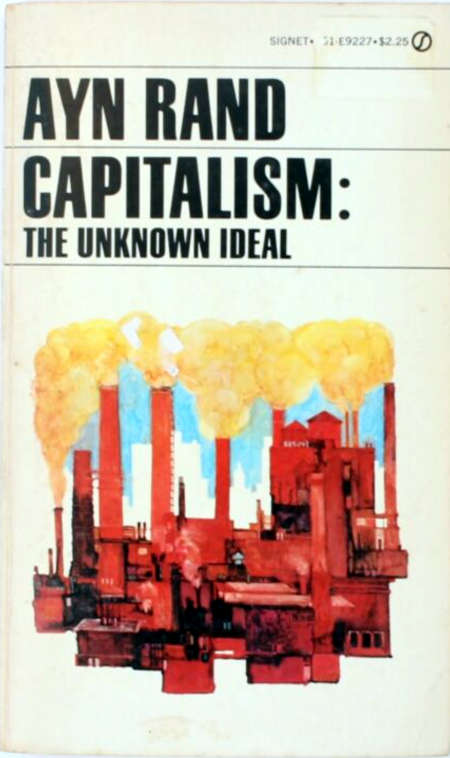
In What Is Capitalism we introduced the idea that capitalism simply understood is using money to make more money. Here we examine some of the classical critics of capitalism.
Many defenders of capitalism stipulate that they are defending a specific kind of capitalism variously called laissez-faire, free enterprise, or free market capitalism. Some detractors like to call it “dog eat dog” capitalism because they abhor the very competitive nature of unregulated capitalism.
A fundamental principle of this kind of capitalism is that government does not enact legislation to favor one competitor over another, and especially government does not grant any business a coercive monopoly where if anyone actually tries to compete they would be breaking the law.
The fierce competition of largely unregulated capitalism is the result of different entities trying to supply the best product at the lowest possible price. In practice this results in a range of products of varying quality and price to match the different means of a wide variety of customers. One of the very real beneficiaries of this competition is the consumer, both in price and their choice of what to buy.
It is true that some businesses will fail when they cannot effectively compete against others. The defender will say, and I believe with justification, that this is the way the market tells the owners of the failing business that they are perhaps in the wrong business. Those folks need to find something to do or sell that offers real value to consumers compared to others, or go to work for some business that does.
No one has a right to be in business if they can’t compete.
The basic principle is that no one has an inherent right to be in some business when they can’t match the value and/or prices of others. To say they would have a such a right would be to also say that consumers should be obligated to pay more for their products than they could get elsewhere.
Another criticism of free market capitalism is that it tends towards monopolies. The theory is that when a business becomes the “biggest dog on the block” it can aggressively attack any startup competitor.

Defenders of capitalism reply that short of an illegal use of force, for example hiring some thugs to physically attack competitors, it can be pretty difficult to establish a true monopoly in a free market. As long as physical or legal coercion is not involved a company usually has to consistently offer exceptional products or services at a competitive price – a price that potential competitors would have a hard time matching for the same quality.
Detractors propose that the monopolist could undercut small competitors, selling even below their own cost, and then after the competitor quits they jack up their prices to make up for their losses. While it is a nice theory I don’t know of any examples of companies in the heyday of largely unregulated capitalism in the 19th century that managed to do that successfully over the long run. More than likely when a company jacks up its prices it is just going to encourage more competitors.
Critics of historical capitalism point to child labor and sweatshops in the early Industrial Revolution. If you are reading these words on a computer today you may have no comprehension of the abysmal poverty of most people before capitalism, and its greatest child, the Industrial Revolution. If you want to delve into that a little deeper I recommend reading Capitalism: The Unknown Ideal by Ayn Rand (with contributions by Nathaniel Branden, Alan Greenspan, and Robert Hessen). I won’t kid you, it is a full blown defense of laissez-faire capitalism with no apologies.

If you are not into reading that, here is the barest summary. For thousands and thousands of years back to human pre-history inventions and improvements in human life were few and far between. For most of humanity just getting enough food to eat was a real struggle (and child mortality was very high). With the coming of capitalism and then the Industrial Revolution the pace of human invention and creativity advanced by leaps and bounds. Only a generation or so ago Americans walked on the moon, an achievement that most humans who have ever lived could barely imagine possible. Capitalism was a large part of making that achievement possible.
If you want a detailed discussion of how the child labor and sweatshops of the 19th century were not quite the evil some today imagine, read the book. Again, the basic summary; however difficult those conditions were as viewed from our air-conditioned comfort of today, child labor and sweatshops allowed millions of children to survive who would not have in the pre-industrial world. Those factories and sweatshops saved a lot of children (the book has a large compendium of data to demonstrate that).
The 19th century was the heyday of laissez-faire capitalism in America. What we see in America today is a highly regulated version of capitalism. Despite that it still manages every day to create an abundance of products and services that make our life a literal paradise compared to what most human beings throughout history experienced.
The highly regulatory environment today, although designed to prevent the supposed evils of the past, has itself created its own plethora of new evils. We will discuss those in a future post, but now let’s talk about probably the most consequential critic of capitalism, Karl Marx.